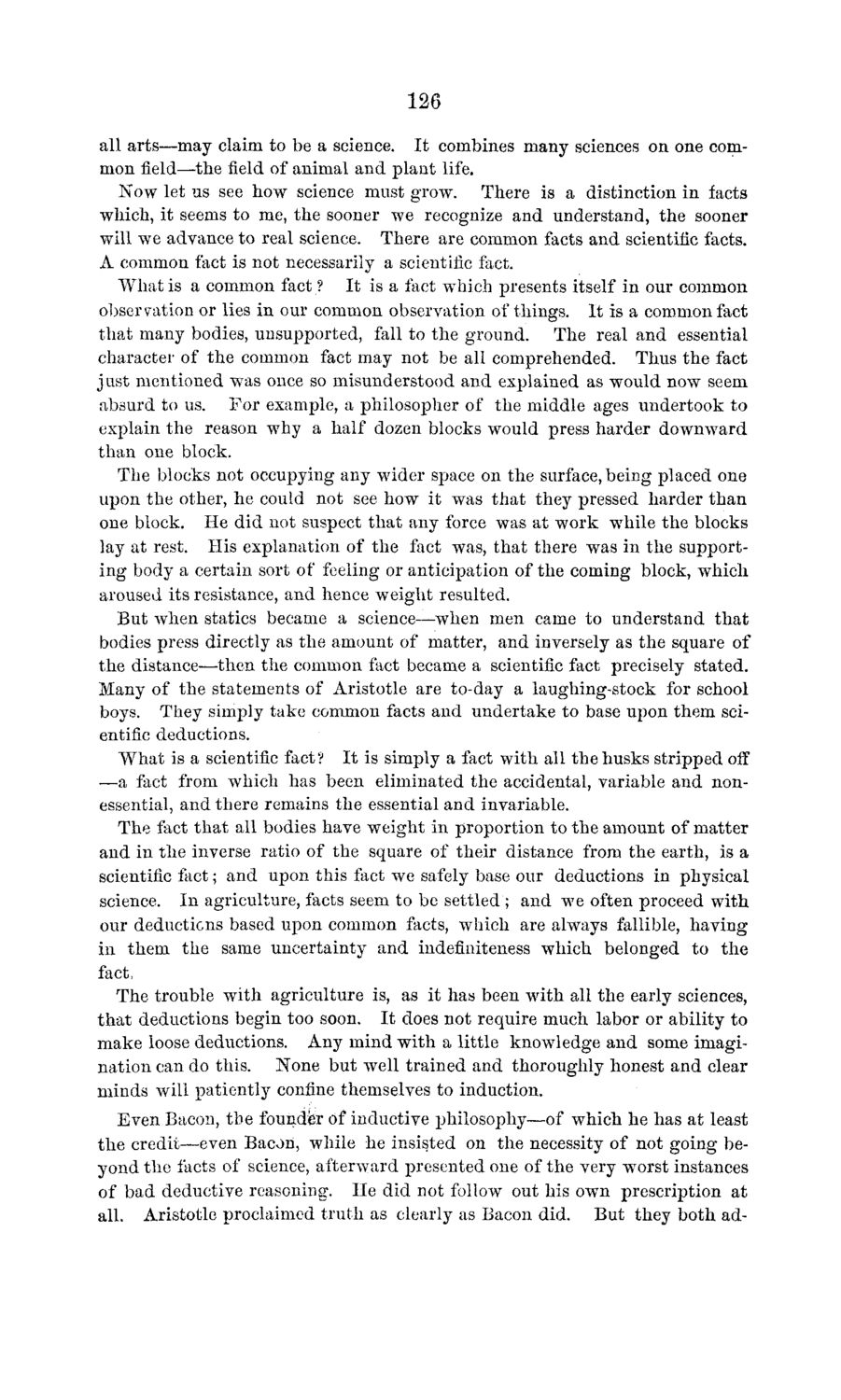| |
| |
Caption: Board of Trustees Minutes - 1869
This is a reduced-resolution page image for fast online browsing.

EXTRACTED TEXT FROM PAGE:
126 all arts—may claim to be a science. I t combines many sciences on one common field—the field of animal and plant life. Now let us see how science must grow. There is a distinction in facts which, it seems to me, the sooner we recognize and understand, the sooner will we advance to real science. There are common facts and scientific facts. A common fact is not necessarily a scientific fact. What is a common fact? It is a fact which presents itself in our common observation or lies in our common observation of things. It is a common fact that many bodies, unsupported, fall to the ground. The real and essential character of the common fact may not be all comprehended. Thus the fact just mentioned was once so misunderstood and explained as would now seem absurd to us. For example, a philosopher of the middle ages undertook to explain the reason why a half dozen blocks would press harder downward than one block. The blocks not occupying any wider space on the surface, being placed one upon the other, he could not see how it was that they pressed harder than one block. He did not suspect that any force was at work while the blocks lay at rest. His explanation of the fact was, that there was in the supporting body a certain sort of feeling or anticipation of the coming block, wThich aroused its resistance, and hence weight resulted. But when statics became a science—when men came to understand that bodies press directly as the amount of matter, and inversely as the square of the distance—then the common fact became a scientific fact precisely stated. Many of the statements of Aristotle are to-day a laughing-stock for school boys. They simply take common facts and undertake to base upon them scientific deductions. W h a t is a scientific fact? I t is simply a fact with all the husks stripped off —a fact from which has been eliminated the accidental, variable and nonessential, and there remains the essential and invariable. The fact t h a t all bodies have weight in proportion to the amount of matter and in the inverse ratio of the square of their distance from the earth, is a scientific fact; and upon this fact we safely base our deductions in physical science. I n agriculture, facts seem to be settled ; and we often proceed with our deductions based upon common facts, which are always fallible, having in them the same uncertainty and indefiniteness which belonged to the fact, The trouble with agriculture is, as it has been with all the early sciences, t h a t deductions begin too soon. I t does not require much labor or ability to make loose deductions. Any mind with a little knowledge and some imagination can do this. None but well trained and thoroughly honest and clear minds will patiently confine themselves to induction. Even Bacon, the founder of inductive philosophy—of which he has at least t h e credit—even Bacon, while he insisted on the necessity of not going beyond the facts of science, afterward presented one of the very worst instances of bad deductive reasoning. He did not follow out his own prescription at all. Aristotle proclaimed t r u t h as clearly as Bacon did. But they both ad-
| |